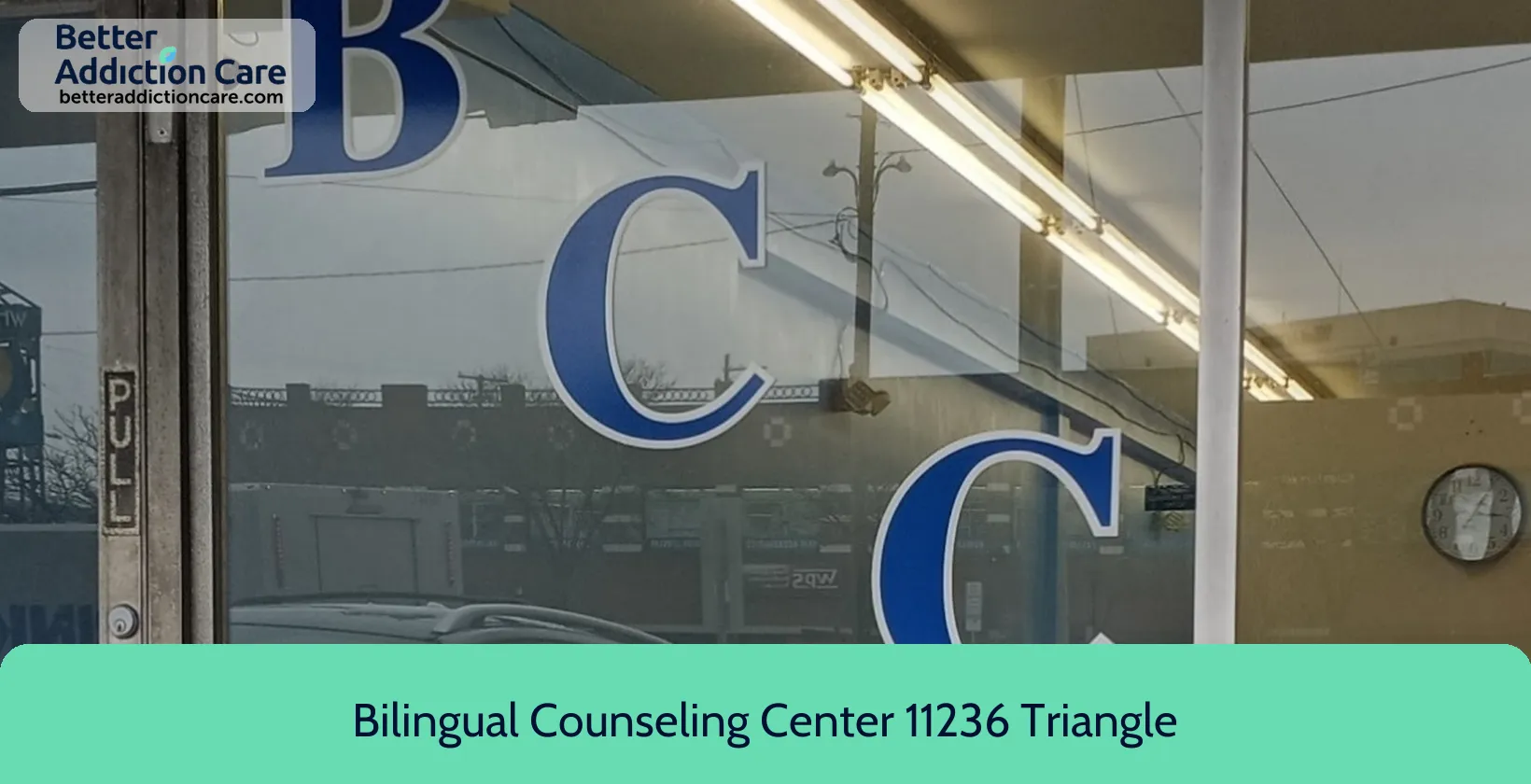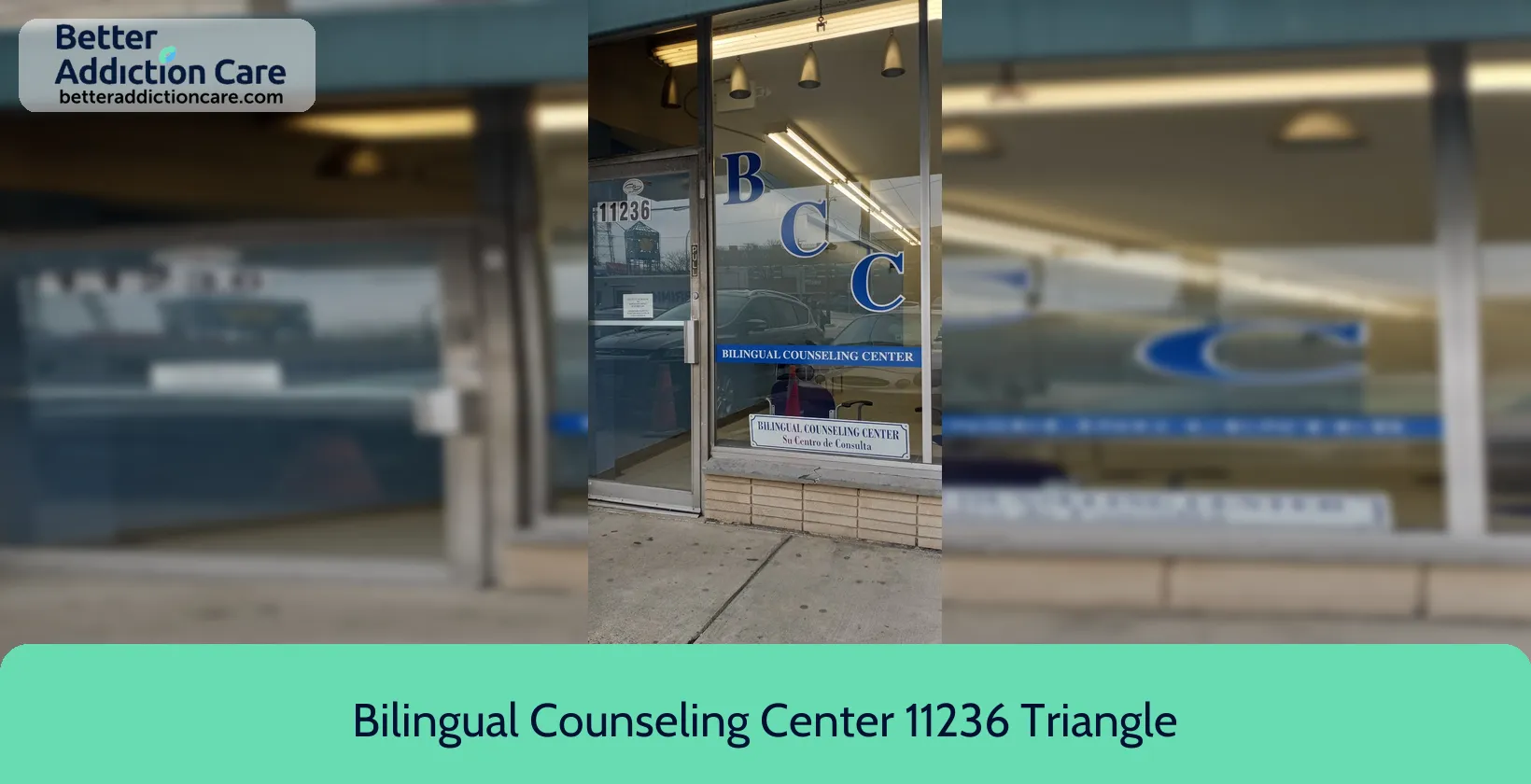Bilingual Counseling Center 11236 Triangle Lane
Overview
Bilingual Counseling Center 11236 Triangle Lane is a substance abuse treatment center for people seeking treatment near Montgomery County. As part of their treatment modalities for recovery, Bilingual Counseling Center 11236 Triangle Lane provides telemedicine/telehealth therapy, substance use disorder counseling, and group counseling during treatment. Bilingual Counseling Center 11236 Triangle Lane is located in Silver Spring, Maryland, accepting cash or self-payment for treatment.
Bilingual Counseling Center 11236 Triangle Lane at a Glance
Payment Options
- Cash or self-payment
- Medicaid
Assessments
- Screening for tobacco use
- Comprehensive substance use assessment
- Outreach to persons in the community
- Screening for substance use
Age Groups
- Young adults
- Adults
- Seniors
Operation
- Private for-profit organization
Highlights About Bilingual Counseling Center 11236 Triangle Lane
6.65/10
With an overall rating of 6.65/10, this facility has following balanced range of services. Alcohol Rehabilitation: 8.00/10, Drug Rehab and Detox: 6.00/10, Insurance and Payments: 6.00/10, Treatment Options: 6.61/10.-
Alcohol Rehabilitation 8.00
-
Treatment Options 6.61
-
Drug Rehab and Detox 6.00
-
Insurance and Payments 6.00
Accreditations
State department of health:

Government agencies issue State Licenses, granting rehabilitation organizations permission to operate their businesses legally within specific geographic regions. The licenses needed for legal operation are typically determined by the type of rehabilitation program offered by a facility and its physical location.
The Joint Commission:

The Joint Commission, previously known as JCAHO, is a nonprofit organization that accredits rehabilitation organizations and programs. Established in 1951, its mission is to enhance the quality of patient care and showcase excellence in healthcare delivery.
Treatment At Bilingual Counseling Center 11236 Triangle Lane
Treatment Conditions
- Alcoholism
- Substance use treatment
Care Levels
- Outpatient
- Regular outpatient treatment
- Aftercare
Treatment Modalities
- Telemedicine/telehealth therapy
- Substance use disorder counseling
- Group counseling
- 12-step facilitation
- Intervention Services
Ancillary Services
Languages
- Spanish
Additional Services
- Pharmacotherapies administered during treatment
- Discharge Planning
- Breathalyzer or blood alcohol testing
Contact Information
Read our Most Recent Article About Drug Addiction
DISCLAIMER: The facility name, logo and brand are the property and registered trademarks of Bilingual Counseling Center 11236 Triangle Lane, and are being used for identification and informational purposes only. Use of these names, logos and brands shall not imply endorsement. BetterAddictionCare.com is not affiliated with or sponsored by Bilingual Counseling Center 11236 Triangle Lane.











